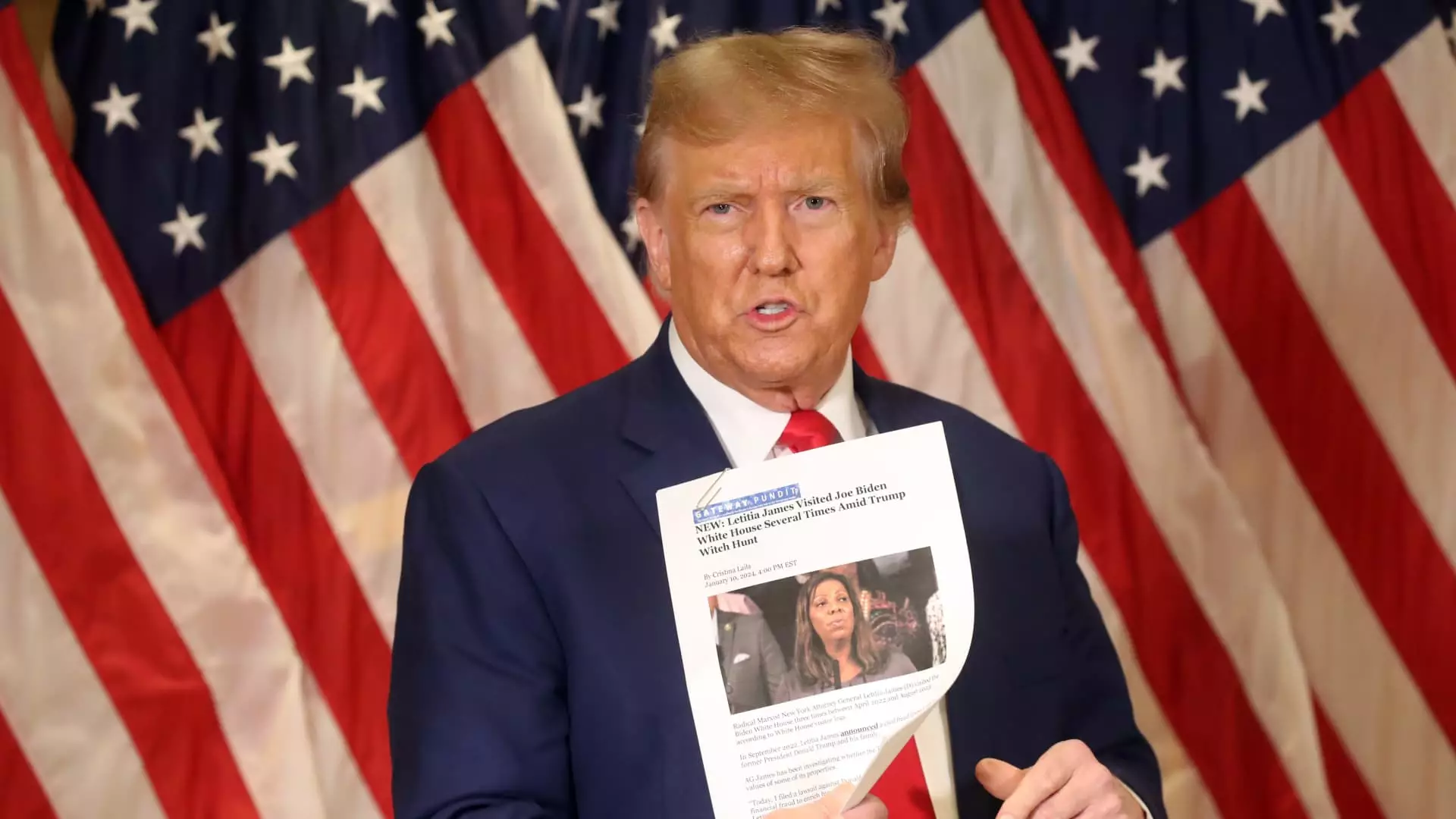Former President Donald Trump is facing challenges in securing an appeal bond to prevent New York’s attorney general from seizing his real estate assets in relation to a $454 million civil fraud judgment. Trump’s lawyers have indicated that it has been “impossible” for him to obtain a bond that would fully secure the judgment while he appeals the verdict. This predicament has put Trump at risk of having his properties seized on March 25 if a bond is not posted.
Trump’s legal team revealed that they approached approximately 30 surety companies in an attempt to secure the necessary bond, but none were willing to underwrite it. The filing highlighted that obtaining a bond of that magnitude would necessitate “cash reserves approaching $1 billion,” which neither Trump nor his organization possess. Despite Trump’s claims of having substantial cash reserves, the inability to obtain the bond has posed a significant obstacle in this legal battle.
Manhattan Supreme Court Judge Arthur Engoron had previously ordered Trump and his co-defendants to pay a total of $464 million in damages and interest for violation of a New York anti-fraud statute. Trump was assigned the majority of the judgment, amounting to $454 million, with post-judgment interest accruing at a rate of nearly $112,000 per day. This legal battle has not only resulted in a substantial financial burden for Trump but also raised questions about his liquidity position and ability to comply with the court’s ruling.
A detailed court filing by Trump’s lawyers shed light on the challenges faced in securing the appeal bond. The filing included an affidavit from a representative of Lockton Companies, outlining the practical difficulties in obtaining a bond of $464 million. The limited number of surety companies approved to issue such bonds, along with stringent requirements for collateral and liquidity, presented a formidable barrier for Trump and his organization.
The inability to secure the appeal bond has significant implications for Trump and the Trump Organization. Despite claims of financial strength, the lack of readily available cash reserves or liquid assets to offer as collateral has hindered their ability to meet the court’s demands. The filing highlighted the challenges in obtaining a bond of this magnitude, emphasizing that such bonds are typically issued to large public companies rather than individuals or privately held businesses.
The legal battle surrounding the appeal bond underscores the complexities and intricacies of the case against Trump. The rejection of a $100 million bond proposal and the demanding requirements set by bond issuers have created a challenging environment for Trump and his legal team. As the deadline for posting a bond approaches, the future course of action for Trump remains uncertain, with the looming threat of property seizure adding to the urgency of the situation.
The struggle to secure an appeal bond in the New York civil fraud case presents a formidable challenge for Donald Trump. The legal complexities, financial implications, and stringent requirements set by bond issuers have created a precarious situation for Trump and his organization. As the legal battle unfolds, the outcome remains uncertain, with significant implications for Trump’s financial standing and legal obligations.

Leave a Reply